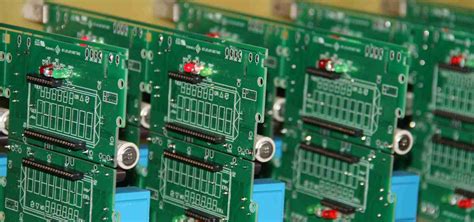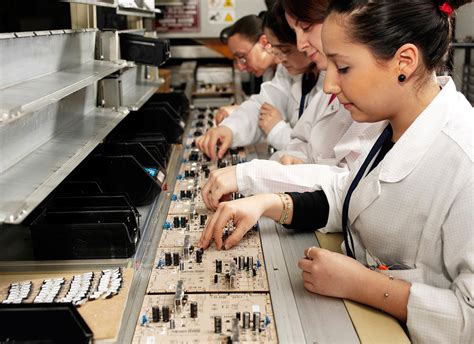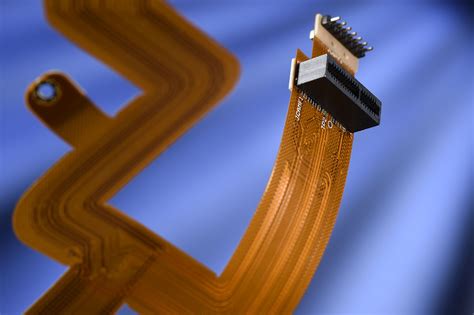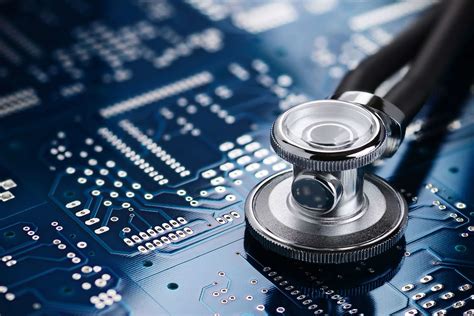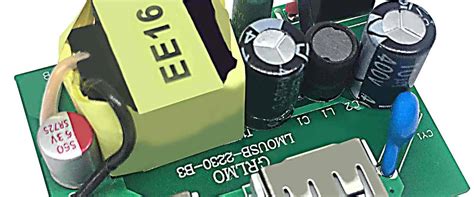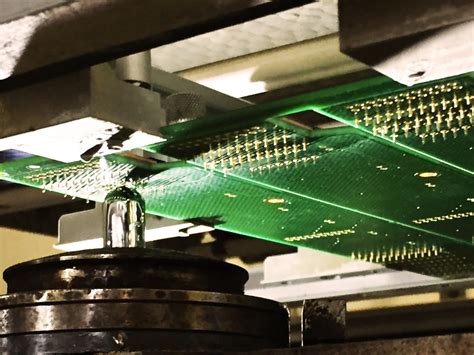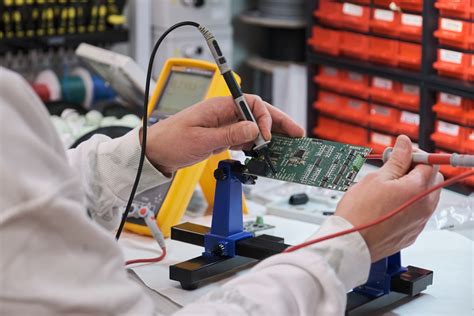Unlock Efficiency with Turnkey PCB Assembly Solutions
Key Takeaways
Turnkey PCB assembly solutions have emerged as a game-changer in the electronics manufacturing industry. By opting for turnkey services, companies can benefit from a streamlined approach to the entire PCBA process. Firstly, understanding turnkey PCB assembly means recognizing that it encompasses everything from design to finished product, allowing manufacturers to focus on their core competencies while leaving complex assembly tasks to experts. This not only reduces the burden on in-house teams but also helps in minimizing errors and ensuring quality.
One of the significant advantages of these solutions is their ability to reduce lead times. A well-implemented turnkey assembly strategy minimizes the typical delays associated with sourcing components and managing logistics, thereby allowing for quicker market entry. In addition, it enhances overall efficiency by integrating various stages of production into a singular cohesive workflow. This integration results in fewer hand-offs and misunderstandings among different teams involved, ultimately contributing to better productivity.
Furthermore, with the landscape of electronics rapidly evolving, manufacturers are increasingly looking to innovative ways of integrating PCBA into their manufacturing strategies. By leveraging turnkey solutions, organizations can remain agile and responsive to market demands while maintaining high-quality standards. Overall, adopting this comprehensive approach not only yields optimal results but also fosters a competitive edge in today’s dynamic business environment.
Understanding Turnkey PCB Assembly: A Comprehensive Overview
Turnkey PCB assembly is an integrated service that manages the entire manufacturing process of printed circuit boards (PCBs) from design to assembly. It provides a seamless approach whereby a single source handles all aspects of PCBA production, allowing businesses to focus on their core competencies. By leveraging turnkey solutions, companies can significantly simplify their supply chain, as they eliminate the need for multiple vendors for various stages of production.
Moreover, with turnkey PCB assembly, manufacturers benefit from reduced complexity in communication and coordination. A single point of contact ensures that all parties are aligned, resulting in more efficient issue resolution and faster decision-making. This approach also minimizes potential misunderstandings related to specifications, timelines, and materials used.
| Aspect | Traditional PCB Assembly | Turnkey PCB Assembly |
|---|---|---|
| Number of Vendors | Multiple | Single Source |
| Communication Complexity | High | Low |
| Lead Time | Longer | Shorter |
| Coordination Efficiency | Challenging | Streamlined |
Integrating turnkey PCB assembly into your manufacturing strategy not only enhances production efficiency but also contributes to cost savings. This is achieved by optimizing resource utilization and allowing for bulk purchasing of components. By choosing this holistic approach to PCBA, manufacturers position themselves to respond quickly to market demands while maintaining high-quality standards.
“Embrace turnkey solutions to transform your production process; the benefits are undeniable.”
Key Benefits of Turnkey PCB Assembly Solutions
Engaging in turnkey PCB assembly can significantly transform the landscape of electronic manufacturing. These solutions offer a host of advantages that cater to different facets of production. Firstly, by consolidating various stages of PCB assembly into a single service, manufacturers benefit from streamlined workflows, which in turn can lead to reduced complexities in logistics. This integration simplifies the procurement process for components and materials, cutting down on both time and costs. Furthermore, turnkey PCB assembly allows businesses to allocate resources more efficiently. Instead of juggling multiple suppliers for different components, a single-source provider can deliver complete solutions, ensuring consistency and reliability in quality. Importantly, these assemblies also drastically reduce lead times, enabling faster go-to-market strategies for products which is crucial in today’s dynamic environment. Additionally, the expertise offered by specialized service providers can enhance operational efficiency and reduce errors associated with manual assembly processes. Therefore, incorporating turnkey solutions into your manufacturing strategy is not just beneficial; it becomes essential for companies aiming for optimal results in their production lines while maintaining high standards of quality in their PCBA endeavors.
How Turnkey Solutions Streamline Production Processes
In today’s fast-paced manufacturing environment, the role of turnkey PCB assembly solutions is crucial in optimizing production workflows. These comprehensive services encompass every stage of the production cycle, from design to assembly, ensuring that all components are seamlessly integrated. By providing a single source for all PCB assembly needs, organizations can significantly reduce the complexities involved in sourcing and managing multiple suppliers. This consolidation leads to more cohesive communication and minimizes the potential for errors that often arise when handling separate vendors.
The integration of pcba services allows manufacturers to tackle challenges such as inventory management and quality control more effectively. Furthermore, as turnkey solutions streamline processes, they facilitate a more agile response to market demands. Companies can quickly adapt their production lines to accommodate design changes or new product launches without extensive downtime or resource reallocation. This responsiveness not only enhances output but also optimizes resource utilization, allowing businesses to focus on core competencies and innovate further.
Moreover, the comprehensive nature of these solutions aids in ensuring consistency in quality across all units produced. With fewer touchpoints in the assembly workflow, organizations can implement standardized practices that uphold rigorous quality benchmarks throughout the manufacturing process. This level of control translates directly into improved customer satisfaction by delivering reliable and high-quality products on time. Ultimately, turnkey PCB assembly is not just about efficiency; it’s about creating a sustainable manufacturing model that nurtures growth and adaptability in an ever-evolving industry landscape.
Reducing Lead Times with Effective PCB Assembly Strategies
In today’s fast-paced manufacturing landscape, reducing lead times is critical for maintaining a competitive edge. Adopting turnkey PCB assembly solutions can significantly streamline the PCB assembly process, offering numerous advantages that contribute to quicker project turnarounds. A key strategy in this regard is to leverage fully integrated services that manage everything from design and prototyping to final assembly. By entrusting these comprehensive tasks to experienced providers, manufacturers can eliminate delays associated with coordinating multiple suppliers and simplify their workflow. Moreover, with the integration of advanced technologies such as automated assembly and real-time monitoring, the overall efficiency of PCBA processes is greatly enhanced. These innovations not only reduce the time needed for each step in production but also minimize errors that can otherwise lead to costly rework. Therefore, implementing effective PCB assembly strategies through turnkey solutions is not merely beneficial but essential for manufacturers aiming to optimize their production timelines while delivering high-quality products. In conclusion, embracing these practices will place companies on a robust path toward achieving operational excellence and satisfying customer demands efficiently.
Enhancing Efficiency in Manufacturing Through Turnkey Assemblies
In the realm of modern manufacturing, turnkey PCB assembly solutions have emerged as a pivotal element in enhancing operational efficiency. These comprehensive services manage the entire PCB assembly process—starting from design and prototyping to final assembly and testing—allowing companies to focus on their core competencies. By leveraging turnkey solutions, manufacturers can streamline their workflows, reduce manual errors, and optimize resource allocation.
One of the significant advantages of adopting turnkey PCB assembly is the reduction of lead times. Traditional methods often involve multiple suppliers and fragmented processes that can lead to delays. In contrast, a turnkey approach provides a single point of contact that ensures better communication and coordination throughout the production cycle. This integration leads to quicker responses to changes and faster time-to-market for products.
Additionally, using pcba services allows for enhanced quality control. With all components sourced and assembled under one umbrella, manufacturers benefit from standardized processes that enhance product reliability. This is particularly important in industries such as electronics, where precision is crucial.
Furthermore, integrating turnkey PCB assembly into your manufacturing strategy not only improves productivity but also fosters innovation by freeing up resources that can be redirected toward research and development initiatives. As companies seek to differentiate themselves in competitive markets, adopting such efficient systems can lead to sustainable growth and increased customer satisfaction.
Integrating Turnkey PCB Assembly into Your Manufacturing Strategy
The integration of turnkey PCB assembly solutions into your manufacturing strategy can significantly elevate your production capabilities. By utilizing a pcba approach, manufacturers not only streamline their operations but also gain access to a comprehensive service that covers every aspect of the pcb assembly process, from design to final testing. This holistic integration ensures that all components work seamlessly together, reducing the complexities often associated with multiple suppliers and parts sourcing. As organizations seek to enhance their efficiency, the shift towards using integrated services like turnkey PCB assemblies becomes increasingly invaluable. Notably, this strategic move allows companies to focus on their core competencies while leaving the intricate details of assembly and logistics in the hands of experts. The resulting synergy not only minimizes errors but also facilitates faster turnaround times, empowering businesses to adapt swiftly in a competitive landscape. Therefore, embedding turnkey PCB assembly into your operational framework can lead to optimal manufacturing results that align with the demands of the market.
Case Studies: Success Stories in Turnkey PCB Implementation
In the realm of PCB assembly, many companies have successfully leveraged turnkey solutions to optimize their production processes. One notable case is a leading electronics manufacturer that faced significant delays due to a fragmented supply chain. By adopting turnkey PCB assembly services, they transformed their approach by consolidating their supply chain management. This integration not only reduced lead times but also streamlined communication among suppliers, manufacturers, and designers. The implementation of PCBA resulted in a quicker time-to-market for their products and ultimately increased their market share. Another example can be seen in a startup focused on wearable technology, which utilized turnkey solutions for rapid prototyping and scaling of production. They benefitted from faster iterations and efficient resource allocation, supporting their goal to innovate at an accelerated pace. These success stories illustrate how effective integration of turnkey PCB assembly can lead to significant improvements in performance and efficiency across various manufacturing sectors.
Future Trends in Turnkey PCB Assembly Solutions
As the manufacturing landscape evolves, turnkey PCB assembly solutions are positioned at the forefront of technological advancements. Companies are increasingly looking towards automation and AI-driven processes to optimize their pcb assembly operations. These innovations are not only enhancing accuracy but also allowing for more flexibility in production runs. Another significant trend is the growing demand for sustainability in manufacturing practices, where organizations seek environmentally friendly materials and processes that minimize waste during pcba production. As manufacturers adopt these solutions, they can also expect improvements in supply chain resilience, driven by lean inventories and real-time data analytics that help predict demand fluctuations. Moreover, with the emergence of smart technology, the integration of IoT devices within turnkey PCB assembly processes is reshaping how data is collected and analyzed, leading to proactive decision-making and increased overall efficiency. The focus moving forward will likely center around enhancing these synergies among technologies, solidifying turnkey solutions as a critical factor for success in modern manufacturing environments.
Conclusion
In conclusion, leveraging turnkey PCB assembly solutions offers manufacturers a strategic advantage in an increasingly competitive landscape. These comprehensive services facilitate pcb assembly by managing the entire production cycle, encompassing everything from initial design through to final product delivery. Adopting pcba services not only fosters streamlined operations but also contributes to significant time and cost savings. Businesses that integrate these solutions can expect to see enhanced productivity and reliability in their production processes. Furthermore, as the industry continues to embrace technological advancements, the evolution of turnkey PCB assembly will likely yield even greater efficiencies and innovative practices that can redefine manufacturing standards. This shift is crucial for businesses aiming to maintain a competitive edge while adapting to changing market demands. By understanding and utilizing the benefits of turnkey PCB assembly, companies can truly unlock their potential for growth and success in the future.
FAQs
What is turnkey PCB assembly?
Turnkey PCB assembly refers to a complete manufacturing service that handles every aspect of the PCBA process, from design to delivery of the final assembled product.
Why should I consider turnkey solutions for PCB assembly?
Integrating turnkey solutions can significantly streamline production processes, reduce lead times, and improve overall manufacturing efficiency.
How does turnkey PCB assembly affect lead times?
Turnkey services minimize the delays often associated with sourcing components separately, allowing for faster production and quicker time-to-market.
What are the core benefits of using turnkey PCB assembly solutions?
The key benefits include reduced costs, enhanced quality control, simplified project management, and improved scalability for varied production needs.
Can I customize my PCB assembly project with turnkey solutions?
Yes, most providers offer customizable options to meet specific requirements, ensuring that your project aligns with your unique needs and standards.
Is quality assurance included in turnkey PCB assembly services?
Absolutely. A reputable service provider implements rigorous quality assurance protocols to ensure each assembled unit meets industry standards.

